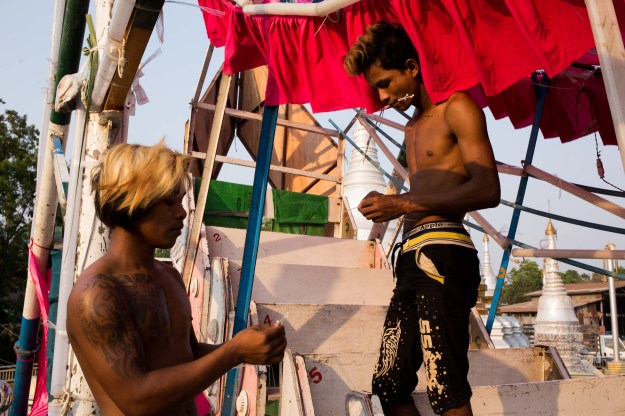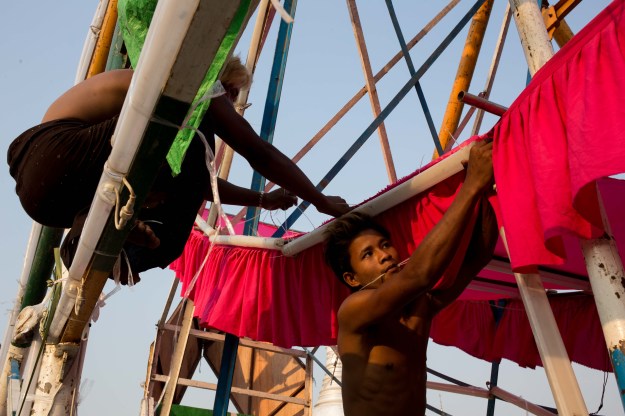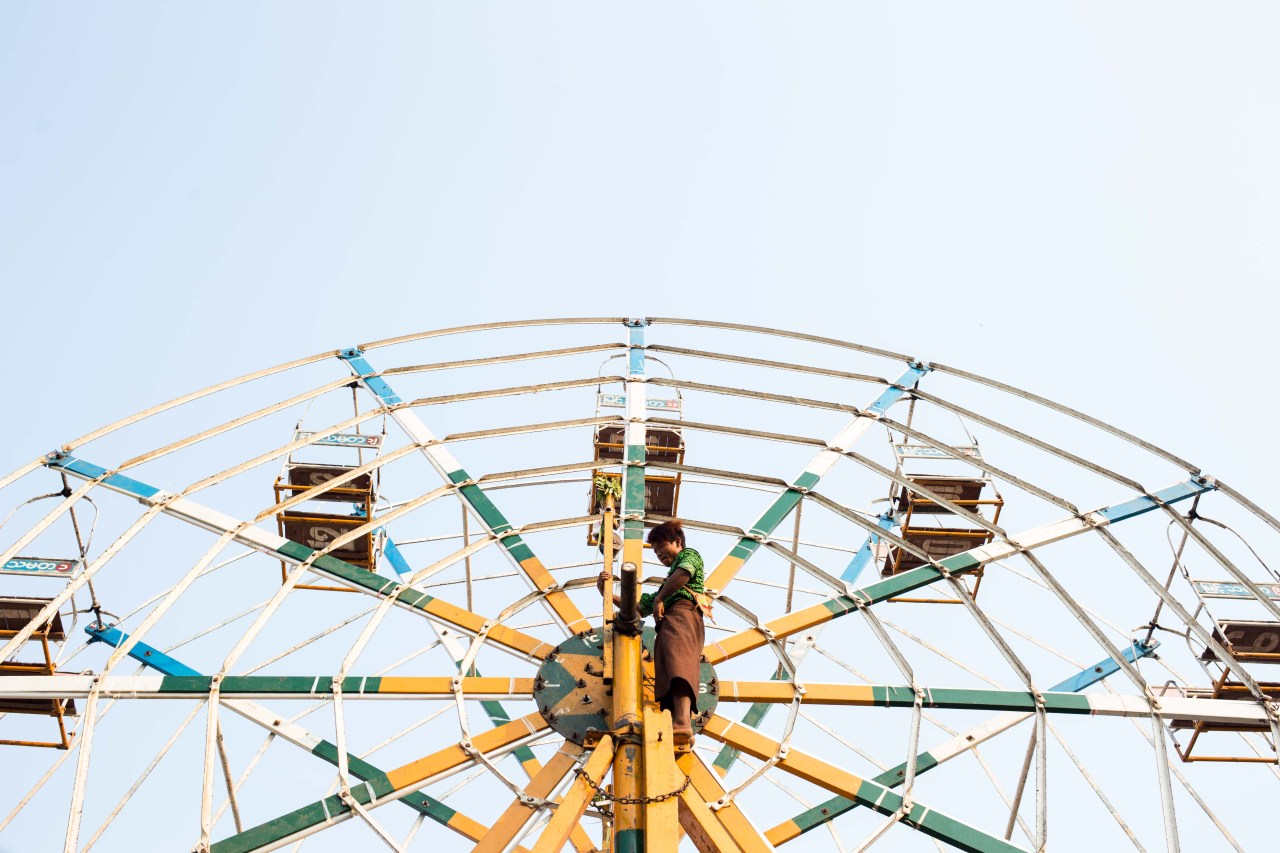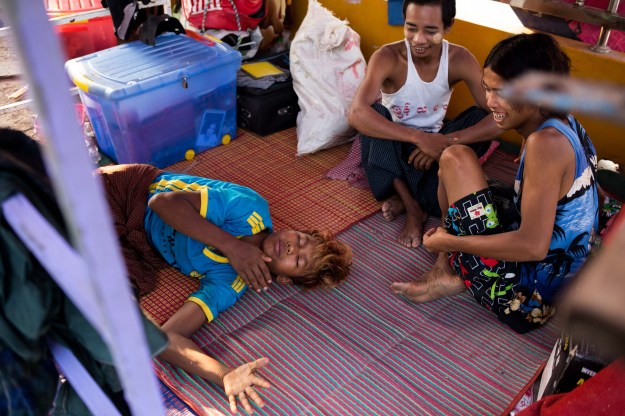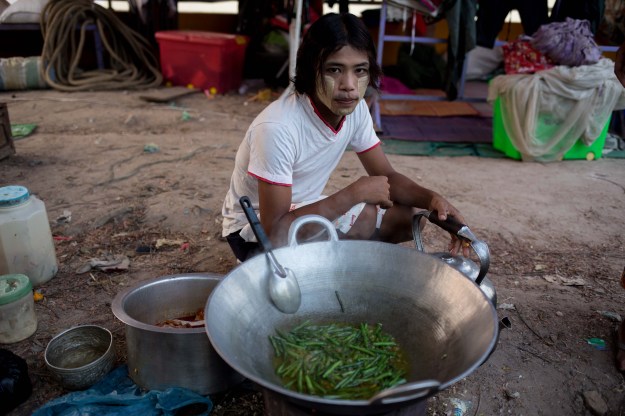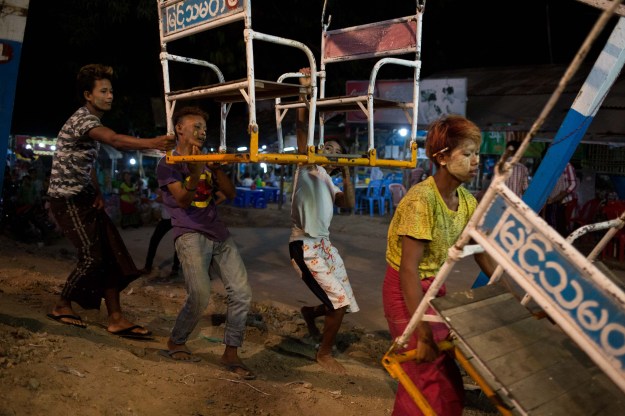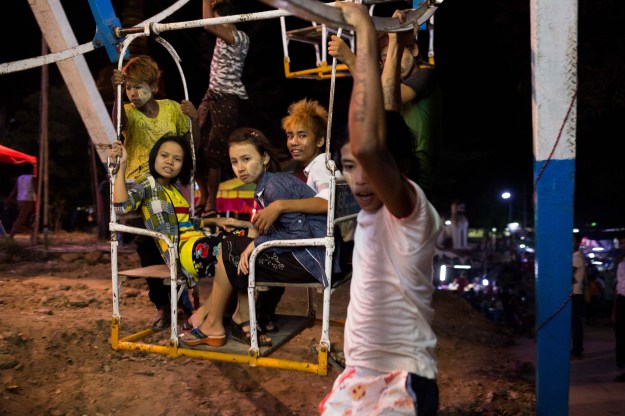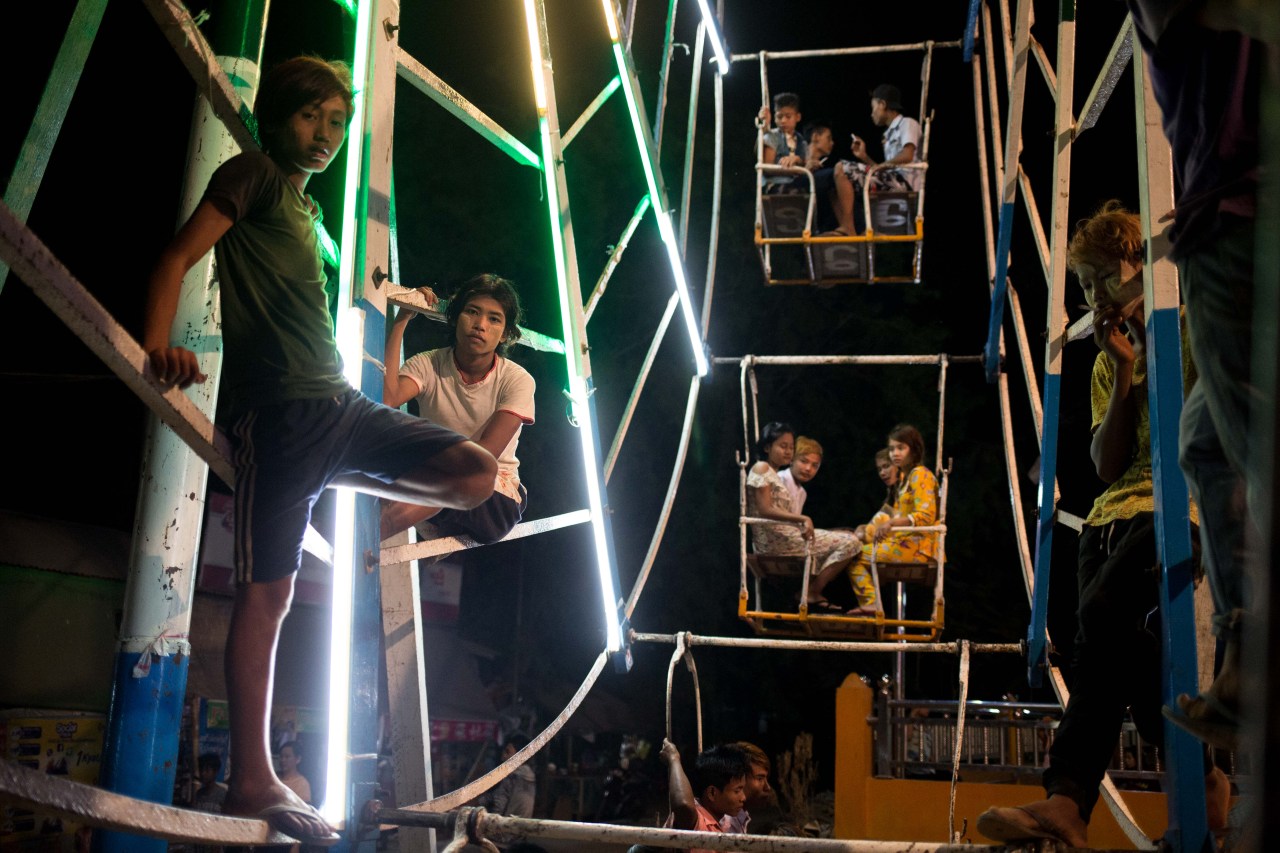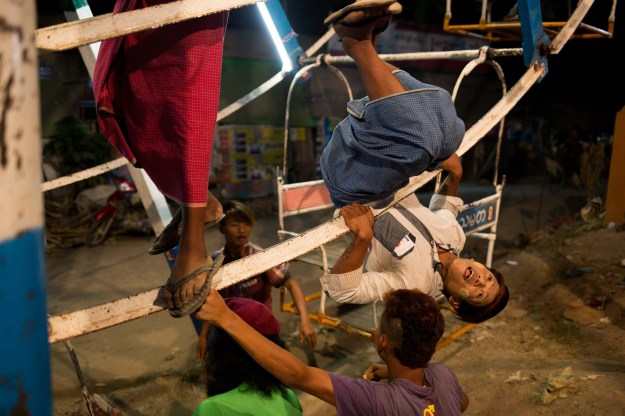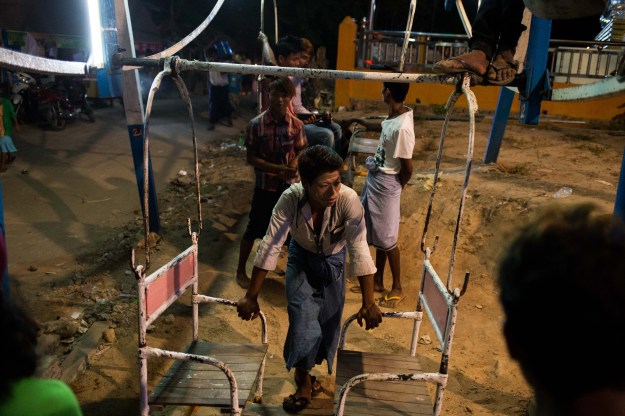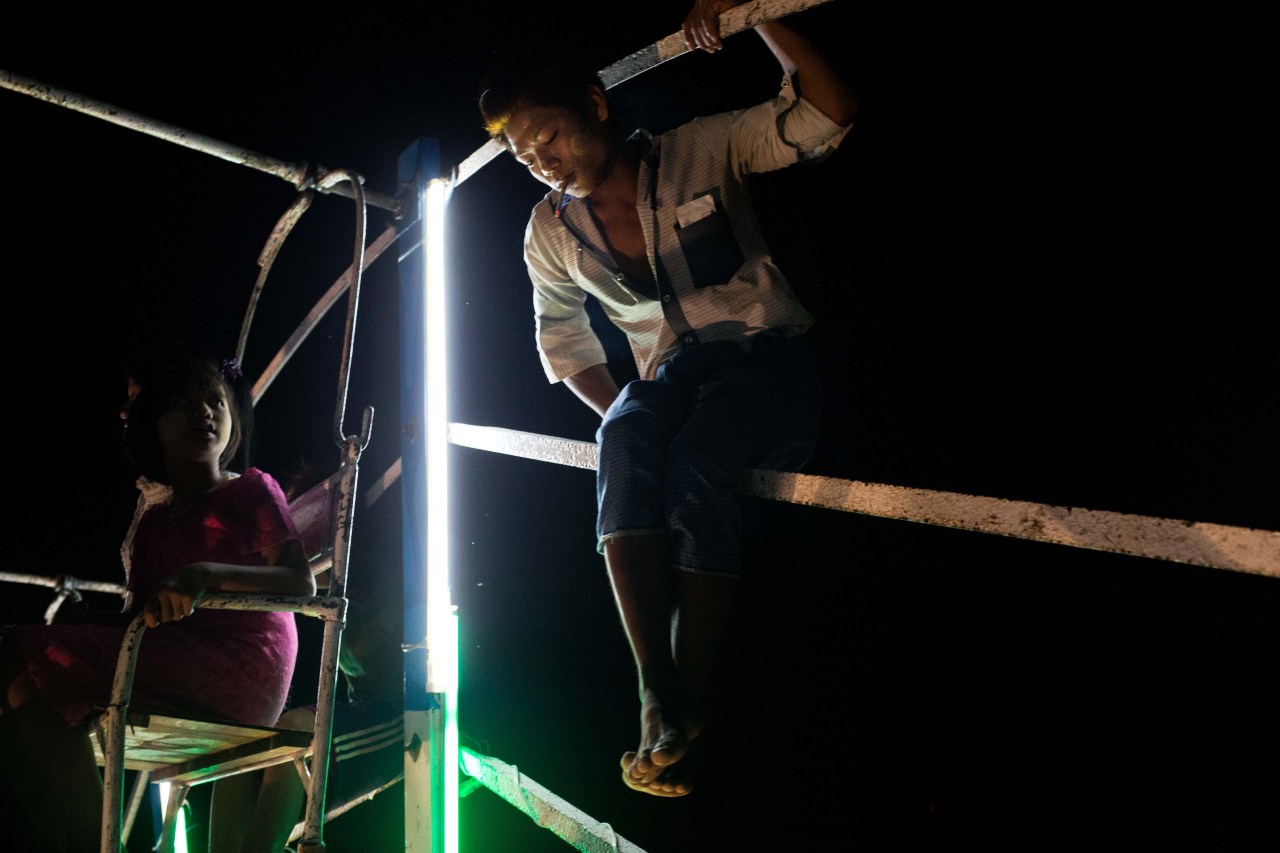They live in makeshift tents, carry their possessions around in a plastic box, shower outside with cold water, and are on the road eight months of the year. But the most difficult part of being a Ferris wheel worker in Myanmar is the risk of injury or falling from the 20-foot-high wheel they climb without safety equipment, using their own body weight to turn the wheel. These human-powered wheels aren’t subject to outages in a country where electricity can be unreliable.
Still, “I love this job. It’s fun!” says 19-year-old Min That Soe, who is from the outskirts of Yangon. He is one of the workers who operate the two Ferris wheels owned by Myint Thamada, a 20-person entertainment group that travels throughout the country. Min, who earns around $75 each month (slightly more than the national minimum wage of $60), says he has not sustained any serious injuries in the four years he has worked there. Twisted ankles and broken bones are relatively common on the job.
His colleague May Thain, 26, has been working and traveling across Myanmar with the group for the past 10 years, bringing along her 6-year-old son. “It’s a very competitive business,” she says, adding that they often have to fight other groups for space at festivals. Every year there are around 20 pagoda festivals; events similar to country fairs or carnivals, they form an important part of Myanmar cultural life. The Myint Thamada group travels to each, setting up its human-powered Ferris wheels, a carousel, and a pirate ship for a week to 10 days before moving on to another location.
People gather around to watch, with jaws dropped, the men running up and down the rickety Ferris wheels. “Four dollars only per person,” the boys yell, often having to hustle to get customers because only the bravest dare give the ride a try.
